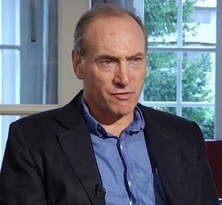 For the fourth episode of the Climate History Podcast, Dr. Dagomar Degroot interviews one of the world's leading environmental historians: Dr. John R. McNeill of Georgetown University. Professor McNeill has authored or co-authored six books, and edited or co-edited twelve. He is perhaps best known for Something New Under the Sun: An Environmental History of the Twentieth-Century World, which won the book prizes of the Forest History Society and the World History Association. He also wrote Mosquito Empires: Ecology and War in the Greater Caribbean, 1640-1914, which was awarded the Beveridge Award of the American Historical Association. McNeill has authored or coauthored well over 50 articles in journals that span the scientific and humanistic disciplines, ranging from Science to Environmental History. He is a past recipient of a MacArthur Grant, a Toynbee Prize, and a Guggenheim Fellowship, among many other awards. In this episode, Professors Degroot and McNeill discuss the "Anthropocene:" the proposed geological epoch distinguished by humanity's profound transformation of Earth's environment. McNeill is currently a member of the Anthropocene Working Group for the Subcommission on Quaternary Stratigraphy. This body of experts recently recommended that International Union of Geological Sciences consider the Anthropocene a new geological epoch, with a starting date of around 1950. Professor Degroot therefore asks Professor McNeill about alternative starting dates, criticisms of the Anthropocene concept, and the special place of climate change in debates about humanity's recent reshaping of the Earth. To listen to this episode, click here to subscribe to our podcast on iTunes. If you don't have iTunes, you can still listen by clicking here.
6 Comments
4/6/2018 02:51:57 am
Thanks for your information, it was really very helpfull..
Reply
6/6/2021 09:53:35 am
Thank you for this fascinating podcast!
Reply
12/17/2023 03:18:43 pm
Excellent .. Amazing .. I’ll bookmark your blog and take the feeds also…I’m happy to find so many useful info here in the post, we need work out more techniques in this regard, thanks for sharing.
Reply
1/29/2024 12:48:44 pm
Vapepapa Fume Extra Flavors offers a delightful array of flavors designed to elevate your vaping experience. Whether you crave the sweet and tangy notes of tropical fruits, the rich and creamy essence of desserts, or the refreshing coolness of menthol, Vapepapa Fume Extra Flavors has to suit every palate. With carefully crafted blends and high-quality ingredients, these e-liquids deliver a smooth and satisfying vaping sensation. Explore the diverse range of Vapepapa Fume Extra Flavors flavors and indulge in a world of delicious options for a truly enjoyable vaping journey.
Reply
6/15/2024 02:21:01 pm
This is extremely fascinating substance! I have completely delighted in perusing your focuses and have reached the conclusion that you are right about a hefty portion of them. You are extraordinary.
Reply
Leave a Reply. |
Archives
December 2021
Categories
All
|

 RSS Feed
RSS Feed